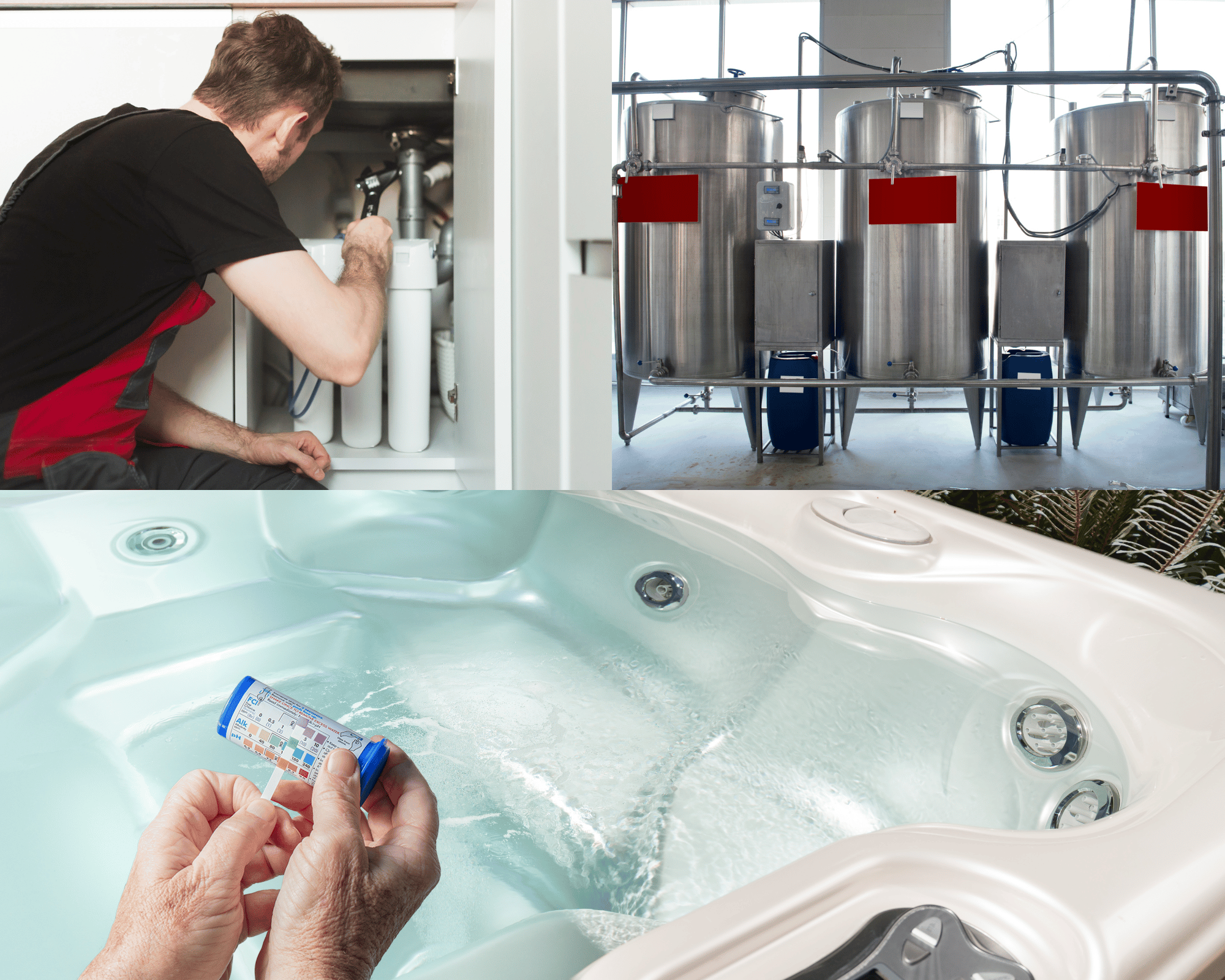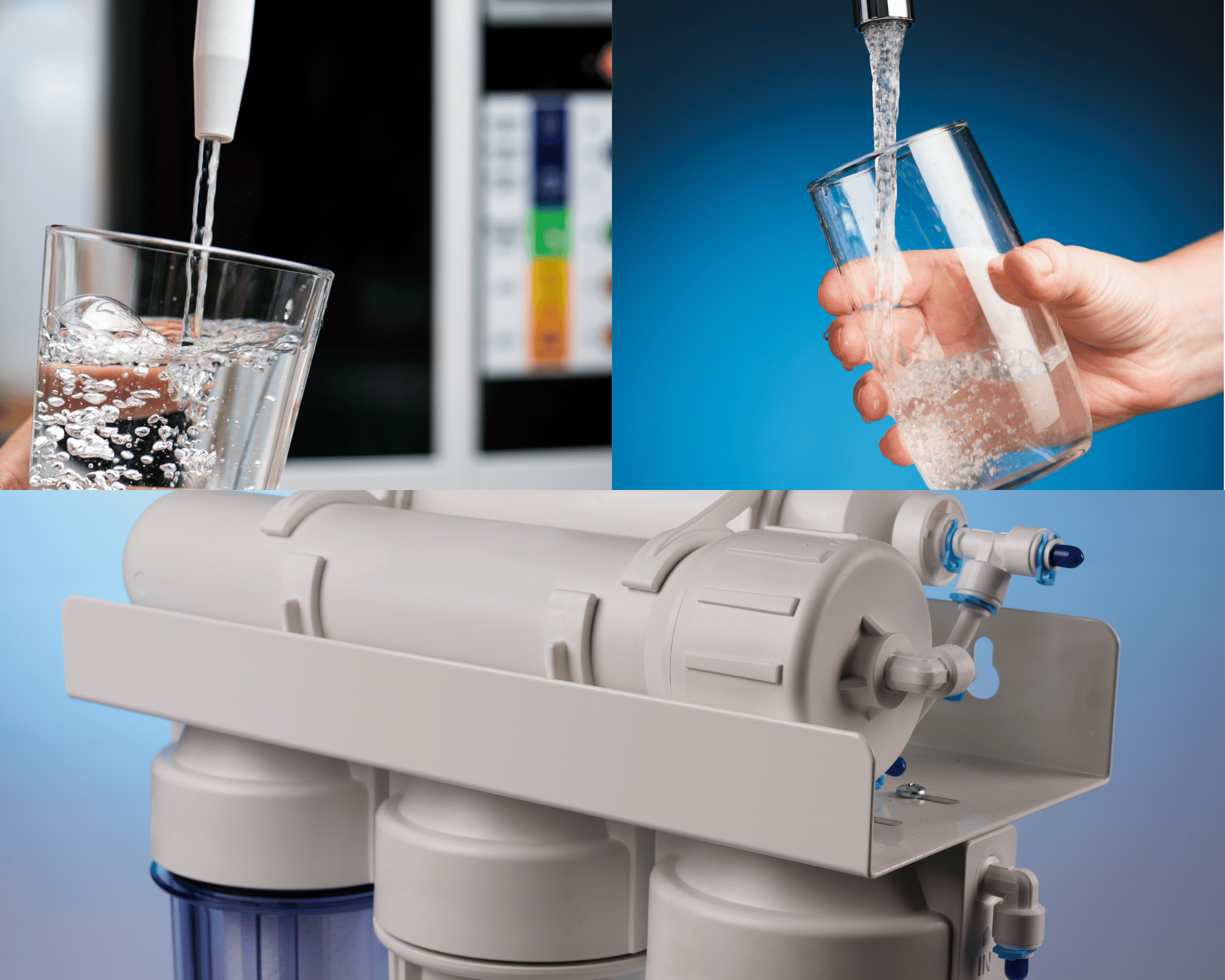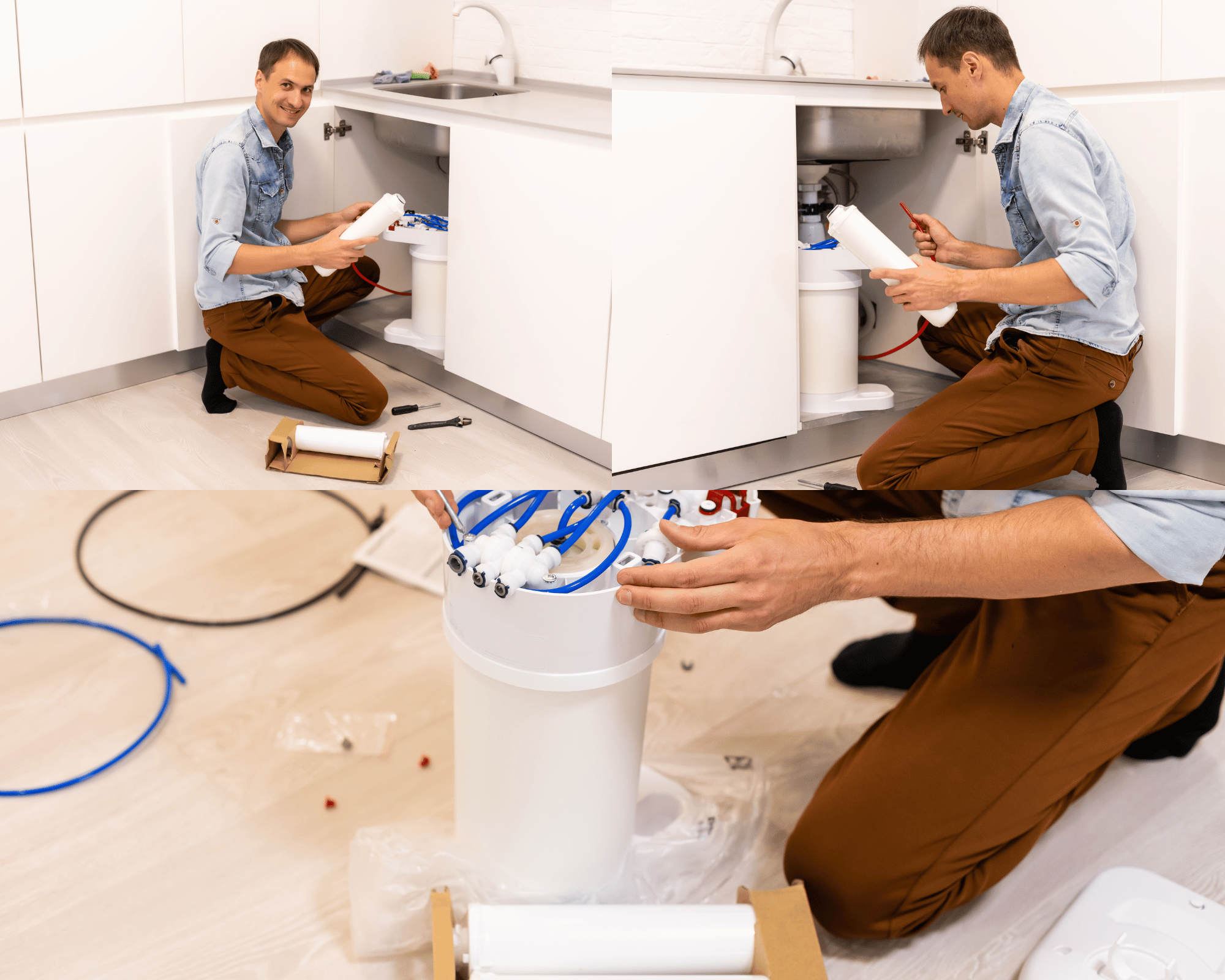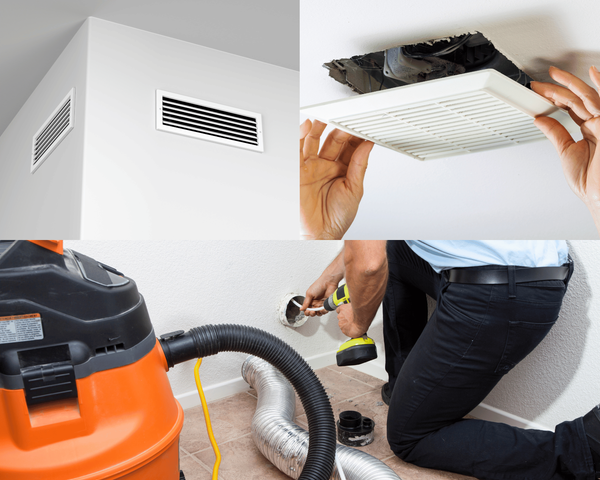In today’s fast-paced world, where health trends come and go like the wind, alkaline water has managed to hold its ground. But what makes it so special? And how do alkaline water filter products fit into the picture? Let’s dive into the bubbling stream of information and explore the benefits and options available for those seeking to enhance their hydration game.
Using an alkaline water pitcher can enhance the taste of water and provide a healthier option compared to tap water.
Key Takeaways:
- Alkaline water filters can improve water quality by increasing pH levels, adding beneficial minerals, and providing better-tasting filtered water.
- Portable alkaline water filters offer convenience for those on the go, while countertop models provide a more permanent solution at home.
- Understanding the different types of alkaline water filters can help you choose the best option for your lifestyle and needs.
Understanding Alkaline Water and Its Benefits
Alkaline water is not just a fancy term thrown around by health enthusiasts. It refers to water with a higher pH level than regular tap water, typically above 7. This increase in pH is believed to neutralize acid in the bloodstream, potentially leading to a variety of health benefits. Some proponents claim that alkaline water can help slow the aging process, regulate pH levels in the body, and prevent chronic diseases.
The science behind these claims is still a topic of debate, but many users report feeling more energized and hydrated after switching to alkaline water. The key lies in the minerals added during the filtration process, such as calcium, potassium, and magnesium, which are essential for maintaining good health. These minerals not only contribute to the water's alkalinity but also enhance its taste, making it a refreshing choice for daily hydration.
The Problem with Bottled Water
Bottled water has become a go-to for many, but it comes with significant drawbacks. One of the most pressing issues is the plastic waste generated from single-use bottles. This plastic waste contributes to environmental pollution, clogging landfills and harming marine life. Moreover, the production and transportation of bottled water have a substantial carbon footprint, adding to greenhouse gas emissions.
Quality is another concern. Bottled water is often sourced from natural springs or municipal supplies, which may not be as strictly regulated as tap water. This can lead to inconsistent quality and potential health risks. Additionally, the cost of bottled water can add up quickly, with some brands charging premium prices for water that may not be significantly different from what you get from your tap.
In contrast, using an alkaline water filter can mitigate these issues. By filtering your tap water, you reduce plastic waste and ensure a consistent supply of high-quality, healthy water. Plus, it’s a more cost-effective solution in the long run.
Types of Alkaline Water Filters
When it comes to choosing an alkaline water filter, the options can be as varied as the colors of a rainbow. Portable alkaline water filters are a popular choice for those who are always on the move. These compact devices can be easily carried in a backpack or purse, allowing you to enjoy alkaline water wherever you go. They typically come in the form of water bottles or small pitchers, equipped with replaceable filter cartridges that increase the water’s pH and add beneficial minerals.
On the other hand, countertop alkaline water filter models are designed for home use, providing a more permanent solution for those who prefer to have alkaline water readily available. These models are installed directly onto your kitchen faucet or come as standalone units that sit on your countertop. They offer a higher filtration capacity compared to portable options, making them ideal for families or individuals who consume large amounts of water daily.
How Alkaline Water Filters Work
Activated Carbon Filtration
Activated carbon filtration is a crucial stage in the process of purifying water. High-quality filter materials like Coconut Activated Carbon and Ion-exchange resin are used to enhance the filter's capacity and performance, ensuring clean and safe water. These materials effectively remove contaminants, odors, and improve the taste of the water, making it healthier to drink.
How Alkaline Water Filters Work
Alkaline water filters use a multi-stage process to transform ordinary tap water into clean, healthy, and alkaline water. Here’s how it works:
- Pre-filtration: The first stage involves removing larger particles and debris, such as sediment and rust, from the water. This step ensures that the subsequent filtration stages can work more effectively.
- Activated Carbon Filtration: Next, the water passes through an activated carbon filter, which removes chlorine, lead, and other chemicals that can affect the water’s taste and odor. This stage is crucial for improving the overall quality and palatability of the water.
- Ion Exchange: In this stage, heavy metals and other impurities are removed from the water. Simultaneously, beneficial minerals like calcium and magnesium are added, enhancing the water’s health benefits.
- Alkalization: The water’s pH level is increased by adding alkaline minerals such as potassium and sodium. This stage typically raises the pH to a range of 8-9.5, making the water more alkaline and potentially more beneficial for your health.
- Post-filtration: Finally, any remaining impurities and contaminants are removed, resulting in clean, healthy, and great-tasting drinking water.
By understanding this process, you can appreciate how alkaline water filters not only purify your water but also enhance its health benefits.
Choosing the Right Alkaline Water Filter for You
Selecting the right alkaline water filter can feel like finding a needle in a haystack, but it doesn't have to be a Herculean task. Start by considering your lifestyle and water consumption habits. If you're constantly on the go, a portable alkaline water filter might be your best bet. These filters are perfect for gym-goers, travelers, or anyone who wants to enjoy alkaline water without the hassle of installation.
For those who spend more time at home, a countertop alkaline water filter model could be the way to go. These filters provide a steady supply of alkaline water, ensuring that you and your family stay hydrated throughout the day. Additionally, they often come with advanced filtration systems that remove impurities and contaminants, offering peace of mind with every sip.
Common Myths and Misconceptions about Alkaline Water
There are several myths and misconceptions about alkaline water that need to be addressed:
- Myth: Alkaline water is a cure-all for various health problems.
- Reality: While alkaline water may offer some health benefits, it is not a panacea for all ailments. It’s essential to consult with a healthcare professional before using alkaline water as a treatment for any medical condition.
- Myth: Alkaline water is too alkaline for human consumption.
- Reality: The human body has a natural pH range of 7.35-7.45, and alkaline water with a pH level of 8-9.5 is safe for consumption. Many people find that drinking alkaline water helps to neutralize acidity in the body, contributing to overall well-being.
- Myth: Alkaline water filters are expensive and not worth the investment.
- Reality: While some alkaline water filters may have a higher upfront cost, they can be a worthwhile investment for those who value clean and healthy drinking water. Many filters are designed to last for several years, making them a cost-effective option over time.
By debunking these myths, you can make a more informed decision about incorporating alkaline water into your daily routine.
Maintenance and Longevity of Alkaline Water Filters
To ensure the longevity and effectiveness of your alkaline water filter, regular maintenance is crucial. Here are some tips to keep your filter in top condition:
- Replace Filters Regularly: Depending on the type of filter, it may need to be replaced every 6-12 months. Regular replacement ensures that the filter continues to remove impurities and contaminants effectively.
- Clean the Filter Regularly: Some alkaline water filters require periodic cleaning to remove built-up impurities. Follow the manufacturer’s instructions for cleaning and maintenance to keep your filter functioning optimally.
- Check the Filter’s Certification: Look for filters certified by reputable organizations such as NSF International or the Water Quality Association. These certifications ensure that the filter meets specific standards for safety and effectiveness.
- Monitor the Filter’s Performance: Regularly check the filter’s performance by testing the pH level and taste of the water. If the filter is not performing as expected, it may need to be replaced or cleaned.
By following these tips, you can ensure that your alkaline water filter continues to provide clean, healthy drinking water for years to come.
Maintenance and Longevity of Alkaline Water Filters bottled water
Like any other household appliance, alkaline water filters require regular maintenance to ensure optimal performance. The frequency of maintenance depends on the type of filter and the quality of your water supply. Portable alkaline water filters typically need their cartridges replaced every two to three months, while countertop models may require less frequent changes, depending on usage. Compared to other methods like distilled water, which involves a different purification process and composition, alkaline water filters offer unique benefits such as improved pH balance and added minerals.
To extend the life of your alkaline water filter, it’s important to follow the manufacturer’s instructions for cleaning and maintenance. Regularly check for any signs of wear and tear, and replace parts as needed to keep your filter running smoothly. By taking these simple steps, you can enjoy the benefits of alkaline water for years to come.
Summary
Alkaline water filter products offer a convenient and effective way to improve the quality of your drinking water. Whether you opt for a portable alkaline water filter for on-the-go hydration or a countertop model for home use, these filters can help increase the pH level of your water and add essential minerals. By understanding the different types of filters available and considering your lifestyle needs, you can make an informed decision and enjoy the potential health benefits of alkaline water. Additionally, these products can help you drink water throughout the day, promoting the importance of staying hydrated.
FAQ
Q1: What are the main benefits of using an alkaline water filter?
A1: Alkaline water filters can increase the pH level of your water, neutralizing acidity and potentially offering health benefits such as improved hydration, increased energy levels, and better taste. They also add essential minerals like calcium and magnesium, which are important for overall health.
Q2: How often should I replace the filter in my alkaline water filter?
A2: The frequency of filter replacement depends on the type of alkaline water filter you have and your water usage. Portable filters typically require cartridge replacement every two to three months, while countertop models may need less frequent changes. Always refer to the manufacturer's guidelines for specific recommendations.
Q3: Can I install a countertop alkaline water filter myself, or do I need professional help?
A3: Many countertop alkaline water filters are designed for easy installation and can be set up without professional assistance. However, if you're unsure or uncomfortable with the installation process, it's always a good idea to consult the manufacturer's instructions or seek professional help to ensure proper setup.













